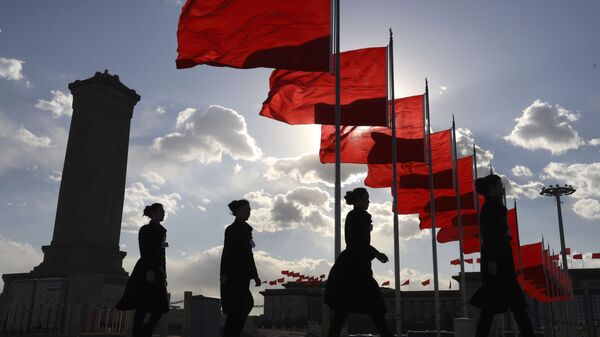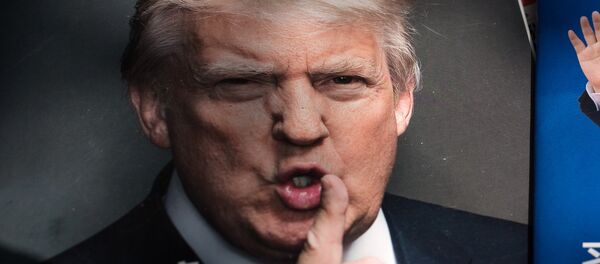Speaking to Fox News, US President Donald Trump noted that he was “very happy” with the Washington-Beijing trade spat and although China wants to become the world’s top superpower, it’s “not going to happen with me”.
“Our economy has been fantastic. Because they were catching us, they were going to be bigger than us. If Hillary Clinton became president, China would have been a much bigger economy than us by the end of her term. And now it’s not even going to be close”, Trump claimed.
READ MORE: US-China Trade Tensions Hurt Emerging Markets, More Uncertainty Ahead
When asked about a possible end game of bilateral trade war, he said, “We’re taking in billions of dollars. China is obviously not doing well like us.” He added that the Chinese economy is “not great” at the moment.
His remarks came after Trump tweeted last week that Beijing is “dreaming” that ex-US Vice President Joe Biden or any other Democratic candidate would take the highest post in the Oval Office in 2020. In April, Biden announced that he would enter the US 2020 presidential race.
“China felt they were being beaten so badly in the recent negotiation that they may as well wait around for the next [US] election”, Trump argued.
Earlier, the latest round of US-China trade negotiations ended in Washington DC, failing to produce any results. The White House, in turn, introduced a new set of tariffs on $200 billion worth of Chinese goods, with Beijing pledging to retaliate against the move.
READ MORE: China Lashes Out at US Over Blacklisting Huawei Amid Spiralling Trade Spat
“Between countries, trade and investment must be based on mutual respect, equality and mutual benefit. As for what countermeasures the Chinese government and enterprises will take, please wait and see”, Chinese Foreign Ministry spokesman Lu Kang underscored.
The US and China have been embroiled in a trade dispute since last June, when Trump moved to impose 25 per cent tariffs on $50 billion worth of Chinese goods.
He cited concerns that Chinese trade practices were hurting American companies while demanding an adjustment to the terms of trade between the two countries. Since then, the two economic powers have exchanged several rounds of new trade duties.



